The KapitusPlaybook: How Andrew Reiser Built Alternative Lending's Most Resilient Platform Through Three Market Cycles
In a rare candid interview, KapitusCEO Andrew Reiser offers institutional lending executives and alternative finance leaders an unfiltered look at building sustainable lending operations across market volatility. With nearly two decades of alternative finance experience spanning 2008's financial crisis, COVID-19 disruption, and the current interest rate environment, Reiser's insights provide a strategic framework for positioning lending platforms during inevitable market contractions.
The Evolution From Manual Intimacy to Systematic Intelligence
Reiser reveals Kapitus' operational evolution from its 2006 origins when the team literally "rang a gong" for every incoming application and manually reviewed each deal around a conference table. This anecdote illustrates a critical scaling challenge facing alternative lenders: preserving underwriting quality while achieving institutional scale.
"You can't get there with manual processes," Reiser explains, "but yet manual processes in some instances have greater accuracy." The solution lies not in wholesale automation but in building technology that captures the contextual judgment that drives successful manual underwriting. Kapitus' approach focuses on creating scalable systems that maintain the nuanced decision-making capabilities that differentiated them during their boutique phase.
For institutional lending executives, this represents a fundamental strategic choice: pursue pure efficiency through automation or invest in "intelligent scale" that preserves underwriting edge. Reiser's framework suggests the latter approach creates more sustainable competitive advantages in business lending markets.
The Banking Retreat Arbitrage: Positioning for Cyclical Opportunities
Perhaps Reiser's most valuable insight concerns positioning alternative lending platforms for predictable banking sector contractions. He identifies three major inflection points where traditional bank retreat created exponential growth opportunities for prepared alternative lenders: 2008's regulatory tightening, COVID-19's risk aversion, and current elevated interest rate environments.
"When banks moved away, it really opened up the opportunity to expand and gave much more visibility to the space," Reiser notes. This pattern reveals a systematic arbitrage opportunity: banks retreat during volatility precisely when small and medium businesses most need capital access.
Institutional players should anticipate these cycles rather than merely react to them. Reiser's strategy involves building infrastructure and capital reserves specifically to capitalize on banking vacuum periods, transforming market stress into competitive advantage.
Product Infrastructure Expansion: Leveraging Core Competencies Across Verticals
Kapitus acquisition of an equipment finance company demonstrates sophisticated thinking about leveraging alternative lending infrastructure across traditional asset-based lending verticals. Reiser explains this isn't simply portfolio diversification but strategic application of fast underwriting engines and customer acquisition capabilities to historically bureaucratic lending products.
"What that industry needed is how do you take what this industry has built—acquisition engines and quick methodologies to underwrite—and bring it to other products," Reiser elaborates. This represents a maturation of alternative finance beyond merchant cash advances and term loans toward comprehensive small business capital solutions.
For institutional lending executives, this suggests opportunities to apply alternative lending methodologies to equipment finance, real estate, inventory financing, and other asset-backed products traditionally dominated by banks and legacy finance companies.
Data Context vs. Processing Speed: The Business Lending Complexity Challenge
Reiser provides nuanced analysis of why business lending remains more complex than consumer finance despite technological advances. While consumer lending leverages "trillions of data points" for instant decisions, business lending requires contextual intelligence to interpret cash flow volatility, asset encumbrances, and operational complexity.
"Two guys with the same FICO score—one could have a great business and one could have a horrible business," Reiser explains. This fundamental difference shapes Kapitus' technology development, focusing on capturing business context rather than pure processing speed.
Alternative lenders pursuing institutional partnerships should emphasize their ability to underwrite business complexity that traditional credit scoring models miss, rather than competing solely on transaction speed or customer experience metrics.
Market Structure Evolution: Consolidation and Capital Cost Dynamics
Looking forward three to five years, Reiser anticipates continued industry growth driven by persistent banking sector constraints and technological advancement. He predicts potential bank acquisitions of successful alternative lenders as traditional institutions seek to acquire rather than build alternative lending capabilities.
"It wouldn't surprise me over the next three to five years that banks are the acquirers of some companies in the space," Reiser suggests, contingent on resolving cost of capital disparities between bank funding and alternative lending returns.
Additionally, Reiser expects continued product expansion and declining capital costs for end users as platforms achieve greater scale and underwriting sophistication.
Strategic Implications for Institutional Lenders
Reiser's interview reveals several actionable insights for institutional lending strategy:
Regulatory Integration: Treat compliance as competitive advantage rather than operational burden. Reiser advocates embracing regulation to build superior customer protection and transparency, creating differentiation rather than seeking regulatory arbitrage.
Market Cycle Positioning: Build capital reserves and operational capacity specifically to capitalize on banking retreat periods rather than merely surviving market stress.
Technology-Finance Balance: Maintain lending discipline while leveraging technology for scale. "The best of technologies will not succeed if you don't underwrite properly," Reiser emphasizes.
Strategic Acquisition Targets: Consider acquiring traditional lending businesses where alternative finance methodologies can create operational improvements and market expansion.
Andrew Reiser's leadership of Kapitus through multiple market cycles offers institutional lending executives a proven framework for building resilient alternative finance platforms. His emphasis on preserving underwriting quality while achieving scale, positioning for cyclical opportunities, and expanding beyond core products provides a roadmap for sustainable growth in an increasingly competitive market.
The interview demonstrates that successful alternative lending requires more than technological innovation—it demands strategic patience, operational discipline, and systematic positioning for market cycles that favor prepared institutional players over pure-growth fintech disruptors.
Key takeaway: Alternative lending's next phase belongs to platforms that can combine banking-quality risk management with fintech-speed customer experience across multiple small business capital products.
Transcription
Jordan Hansen: Hello everyone and welcome. Today we have with us today Andrew Reiser. We just discussed how to say his last name. It's Reiser, right? Yes. Talking to us from New York. Uh, I'm really excited to have him. He's the CEO and founder of Kapitus. It was a previous name before but has been Kapitus now and really Kapitus is one of the biggest players in this space, um, and really happy to have him on.
Andrew, how you doing?
Andrew Reiser: I'm doing great. Thanks.
Jordan Hansen: That's good. Andrew, really like to start off just hearing more about your journey. You've been in alternative finance space for a lot of years now, right? And what took you from getting into it at the beginning and then kind of what merged and, and brought you to where you are with Kapitus. Can you give us some background there?
Andrew Reiser: Sure. Um, fairly long story, but I, I started Kapitus in 2006. My background was from, you know, financial services, starting a Pricewaterhouse, working in private equity and investment banking, but also as an entrepreneur. I acquired a company, I sold it to a private equity group, which is how I went to work at the private equity firm.
And then I was also asked to run a, uh, a software company, which the goal was to turn that company around and sell that, which I did. But along the way, what I saw was, you know, very little access to capital for small to mid-size companies. So it, it was. An opportunity that at the time I started the company, there were very few companies in the space.
It was really just one, quite frankly, it was Advance Me, which today is, you know, Can Capital. Mm-hmm. But at that time, they were the market. They were the giant, and there was us that came along. There was a company called Amer Merchant, which was David Golden and a company called, uh, merchant Cash and Capital.
And another one called, uh, BFS, and that really was the market. And we were financing restaurants and nail salons based on, you know, financing future credit card receipts and buying it at a discount. It was a unique way to finance these types of businesses that really had no access to capital. Over time with technology, it, it allowed. Companies to come along and finance all businesses, not just those that took credit card, uh, as a, as a method of transaction. So that whole industry grew as a result of that.
Jordan Hansen: Now, I'm curious, you know, you gave some background really quickly right on where you were in private equity starting this as software firm. So you clearly had, you know, financial background, right? Why would you think this space, so you said again, you saw the lack of access to capital for beginning businesses. But this is not an easy space, especially in 2006 to get into, and like you said, there really wasn't anyone else, like, barely anyone else in it. So what made you think, yeah, this is where I wanna go?
Andrew Reiser: And I'm not gonna say, I sat there and, and, and said, Hey, you know, let, let me figure out how I can finance a restaurant. Um, an opportunity came to me. I, I had, uh, kind of put my investment banking hat on. An opportunity came to me and it was a company that was having some issues, so I, I thought it'd be an opportunity to invest in it and, and then, uh, that company kind of, you know, didn't necessarily, you know, make it per se. And I kind of started this up with that investment and, and six or seven of the people. That were there, I knew the opportunity was right. It was just, you know, the, the, the implementation is what had to happen next.
Jordan Hansen: So 2006, and then a lot of times when I talk to people in the alternative finance space, they really cite like 2008, around that time when those regulations started coming in after 2008 in the crash. Right. That's when it started to boom. You were there before. Right. Tell me about the change in, in the industry as it went through. What did you see? How did that affect your business?
Andrew Reiser: Well, remember we were all very small. Yeah. So, you know, when 2008 came along, it actually gave a, a huge enhancement to our space because all the banks moved away and it wasn't really that banks were financing the space that we were providing capital to anyway.
I mean, banks weren't financing restaurants and nail salons and other retailers. But when the banks moved away, it really opened up the opportunity to expand and it gave much more visibility to the space. So it was one of those inflection points, which happened a few times over the generation, uh, uh, of where we've been.
You know, COVID was another one. It it the growth rate, uh, of Kapitus and I think a number of our other competitors, you'll see that the growth rate of our companies ha have accelerated because once again, as. Some of the more traditional, if you will, the bank lenders continue to, um, to be more highly regulated, have more capital requirements that take less risk.
It then opens it up for those that have, uh, more access to kind of data and analytics as a methodology to understanding the, the nature of the clients that we work with to be able to, to expand that business. And that's what's happened with Kapitus. So we saw it in 2008. We saw it. Through, you know, 2012, 2013, and certainly with, with, with Covid in, in 2020.
Jordan Hansen: So that was gonna be my next questions. You saw, like I said, big changes in the industry in 2008, and then Covid was another one I was gonna say. And now I would even say possibly this past year with, you know, maybe year, year plus with interest rates going up like crazy, cost of capital is increasing. Would you call this another inflection point, whether, I don't know if you'd call it positive or negative.
Andrew Reiser: I wouldn't call this an inflection point. I would call this a cycle, and every few years there are business cycles, right? If you look at the market, right, the market just doesn't, you know, start at one point and take a, you know, a straight line upward there. There are cycles all the time, and interest rates were low for a long time. I think when interest rates rose, it created more difficulty for the small business owner.
You know, I, I, I would joke with a, a lot of people that I've yet to see a business plan being presented with, with an application or an audited financial statement from a big four accounting firm. Yeah. So I think what, what, what happened to small businesses that they had less opportunity for planning? Because they don't have the resources to be able to sit back and say, well, how do we view six months? How do we view a year? How do we view 18 months? I think they got caught a bit in that very quickly rising interest rate environment.
And you know, if you look at the nature of this industry, a portion of it is construction related. And I think a lot of those construction related projects were certainly impacted, right? They bid on a fixed fee basis, their cost goes up, they can't pass it along, but those are normal cycles. Mm-hmm. You see it now with tariffs and, you know, tariffs is, is another. You know, business cycle and, you know, what does that mean? We'll all see, I I don't, tariff is not covid and tariff is not 2008. It's just a business cycle that you're gonna have to work through and ultimately, you know, the environment's going to figure out what they need to do and how they need to manage that.
And then companies like us and you know, our, our competitors are gonna figure out how we lend to those companies and what data and information are gonna tell us, you know, why we want this and why we don't want that.
Jordan Hansen: Andrew, just speaking to you, you just seem like someone who's very not concerned, you're very confident that you're gonna be able to handle whatever happens. Is that kind of how you approach business in general?
Andrew Reiser: Uh, I think you have to. Right. You know, there's very. Few pessimistic business figures that have been hugely successful. And I'm not talking about us being hugely successful. I'm just talking about if you just look at the market in general, I don't think you're gonna see Warren Buffet talk about, you know, the end of the world.
You, you, what you're gonna see is you have to think about everything as an opportunity. Mm-hmm. Right? You know, the glass has to be half full. And that's how you have to think about things. You know, where are the opportunities to then find those opportunities? And, and in every issue and every bad time, you know, someone else's problem is your opportunity.
When there are, you know, issues out there, you have to find how to navigate around those. And you have to find how to kind of figure out the landscape and then grow from there. You just can't sit back and, you know, woe was me and, and, and not deal with, just kind of find your way through it.
Jordan Hansen: So with all these changes. And I, you know, I normally ask about regulation next, like, where do you think that affects it? But none of them raise huge concerns. I mean, it's like a normal part of business is kind of what you're saying. It's like, it's not like you're overly concerned, you're just, things change and you just gotta adapt and kind of keep looking for the opportunities that come with those changes.
Andrew Reiser: Regulation is a part of our business, just like funding our business, just like the operations of our business. Just like, you know, the capital for our business is just another business area to manage. And if you manage it right, regulation could be favorable. You are never gonna buck the system. Right. You know, you, you're never going to come up with the, you know, the regulatory strategy that is against what, you know, the kind of the snowball effect of what's happening.
So you have to figure out how to work in that environment and you have to figure out how to use regulation as a benefit, right? You know, nobody loves to be overly regulated. But if the others, you know, point to it is you gotta look at the regulations and say, well, how does that help me make a better company?
And that's how you have to look at it. How do you take the regulation and say, if I adopt this, we're gonna be better because we're gonna be able to either serve our customer better, we're gonna have better transparency in rates, we're gonna have better opportunity. For a customer to come back for more capital, whatever the reason that the regulation came about in the first place, because you know, regulations come about because this a problem.
Right? Right. And, and somebody reports a problem. Then when the regulators look at it, they see how pervasive the problem is and then they say, Hey, we have to fix this problem. So sometimes the pendulum swings way too far, right? And then, you know, you gotta kind of go in there and say, Hey, it is way too far. You're gonna do this and you're gonna do that. And the pendulum will ultimately settle in the middle as everything else in a business cycle does.
So I think regulation is one that you can't fight. You have to figure out how to work with. The regulators and figure out how to make a better product with understanding that the regulations designed for transparency among other protections.
Jordan Hansen: Ah, that's great. So it's optimism. If you're gonna run a company, you have to be able to, uh, to be thinking clearly and to think clearly is gonna, you know, communicate the vision. Sure. And there's always gonna be roadblocks along the way, but. You know, the, the vision is still the vision and, and you know, it's not a straight line to get there. You just gotta figure out how to, you know, navigate around to get there. Yeah.
Jordan Hansen: Well, Kapitus is one of the biggest players, I would say in the space. One of the most respected. They're like one of the headline sponsors. Often when I go to these conferences, you know, broker Fair, you're definitely one of the ones that are for most, and especially in the technology side. Mm-hmm. I know that you really work hard. I know I've heard, right. I'm in the technology space myself, our company, we help with due diligence. You're someone that we hear about that uses. Kind of technology all the time to try to improve, automate, make things a little bit more efficient. So what's your view on technology, and especially ai as you build a company?
Andrew Reiser: You have to create efficiency, right? You know when, when I started the company, I used to sit around the table with a group of underwriters and we went through every deal, but we were small. Every time a girl came in, somebody rang a gong and we got an application. It was like that. That's what it was. But you can't do that when you go to a certain size, right?
You can't get there with manual processes, but yet manual processes in some instances have, you know, greater accuracy. So you, you try to build technology that allows you to have certain scalability capabilities, but accuracy too. In some cases, you know, automation is gonna be more accurate than manual.
Right, but the, it is the judgment side of the manual that you don't get necessarily with automation. But, but when you start with technology, the first goal is, is scalability, right? You, you wanna be able to take in an unlimited number of applications and be able to process an unlimited number of applications.
In as shorter time as possible to provide the quickest response with the least amount of interference in the middle. Now, on the consumer side, they've done a very nice job of being able to offer instant access to approvals, right? You go into a store and you wanna buy so. Thing and you know, is there's a POS system and you're instantly approved for, you know, a buy now pay later or, or a credit card.
And, and that's because they got trillions of data points on smaller transactions. Business is a lot different. Business is a much smaller data set, and at the same time there's judgment involved in business versus. Individuals, right? Individuals have a credit card, they have a, a car loan, they have a house loan.
But business two guys with the same FICO score, one could have a great business and one could have a horrible mm-hmm. Right? So, so there's a lot of judgment. So, so you have to build the technology that then enables you to capture all the data and then take that data and build models. That can be more predictive and kind of say these models that are more predictive in a scalable method will allow us to underwrite unlimited amounts of applications.
And that's really the goal. Nobody can really do it, you know, instantly, because we can get the data nearly instantly. But you know, businesses have different issues. Right. You're financing a business. Do they have a, you know, a, a lien on their assets? You know, do they have a judgment? Do they have this, do they have, you know, uneven cash flow, right?
They did 20,000, 20,000, 200,000. You look at three months. Does that mean that they average, you know, 80,000 a month? No. You gotta, you gotta understand that. So there's a lot to the business side that is getting better by us and, and by everybody. It's an evolving process, so. Technology enables scalability, and then it, it enables that customer experience that you don't get with a manual process, right?
You, you can't, you know, answer every phone call, but you wanna be able to give somebody online access to be able to answer whatever they need. Virtually instantly when they, you know, provide, uh, you know, an application or some other method of getting, you know, capital from us. Our businesses are technology generated, but at the end of the day, we're still a finance company.
And, and I think where a lot of companies went wrong over the years, maybe they don't think they went wrong, but I think where companies went wrong in the so-called FinTech space is that there is still, you know, a, a deep requirement to do strong underwriting. Because the best of technologies will not succeed if, if you don't underwrite properly.
So, you know, I I would also tell people, you know, it's the finance side that really drives the tech. The tech is really to enable you to get better data and more scalability. But you have to have the right kind of rails and infrastructure to underwrite properly.
Jordan Hansen: That's awesome. Final question, Andrew. Looking forward, how do you see this industry, the alternative finance industry, how do you see it changing in the next three to five years?
Andrew Reiser: Well, it's growing for sure, and it's gonna grow for a few reasons. First, it's gonna grow because of regulation. Mm-hmm. It's gonna grow because of security. Right. Banks already are starting to pull back again, whether it. It'd be, you know, uh, the SBA, for example, is making changes and the banks are, are, well, you know, we have to have more capital requirements or the risk profile is different. So that, that's kinda one level of it.
Second is, you know, there is a need I. For capital to serve a portion of the market that I think everybody needs to really understand that not everybody is going to be able to service a hundred thousand loan and give them money in, you know, two minutes, five minutes, instant, two hours, whatever it is, and the banks can get there. Great. I think over time the banks will try to do that and it wouldn't surprise me over the next three to five years. The banks are the acquirers of some companies in the space.
If they can get over the, uh, you know, kind of the cost of capital that this industry has been kind of obligated to, to charge, to kind of maintain, you know, a a, a certain level of, of losses and acquisition costs and like, but I think that's another thing. I think the other part is that you're gonna see the expansion of this methodology to other products.
You know, we at Kapitus. Acquired an equipment finance company, which is, you know, an old line, if you will, you know, asset based lender, right? That's what equipment finance is, right? You're, you're financing on a secured basis, a, a machine or, or some other asset that they have.
But you know, what that industry kind of needed is, you know, how do you take what this industry has built, which is acquisition engines and quick, uh, methodologies to, to underwrite. And that customer experience to then bring it to other products. And I think you are gonna see that over the next few years.
Uh, so I think there's gonna be an expansion of products. You see some companies have lines of credit, which was kind of like nobody offered a, a line of credit before, right? Because when you lose, you lose the maximum amount. So you have to really be careful how you do it, but if you do it right, that is a product that customers want.
So I see the expansion of products, I see the expansion of the market, and then I see, you know, expansions of, you know, the, the overall industry that's gonna continue to grow and just the acceptance, uh, of the product. I think over time you'll continue to see cost of capital to the end user come down.
It's gonna come down because of scalability, better underwriting, and the market is gonna demand more of that. So, so you have to really look at and see where, where the market's going. But that, that's what I see over the next few years. It's going to continue to grow at a very, you know, rapid rate, quite frankly.
Jordan Hansen: That's awesome. Well, Andrew, I really appreciate your time and thanks for, you know, especially with your cold coming on and speaking to me.
Andrew Reiser: Yeah, sorry I'm a little nasal, but
Jordan Hansen: Yeah, no, you've been great. Honestly, barely even hear it here on the call. Alright, well very good. Yeah, thanks. Have a great day.
Andrew Reiser: You too now.





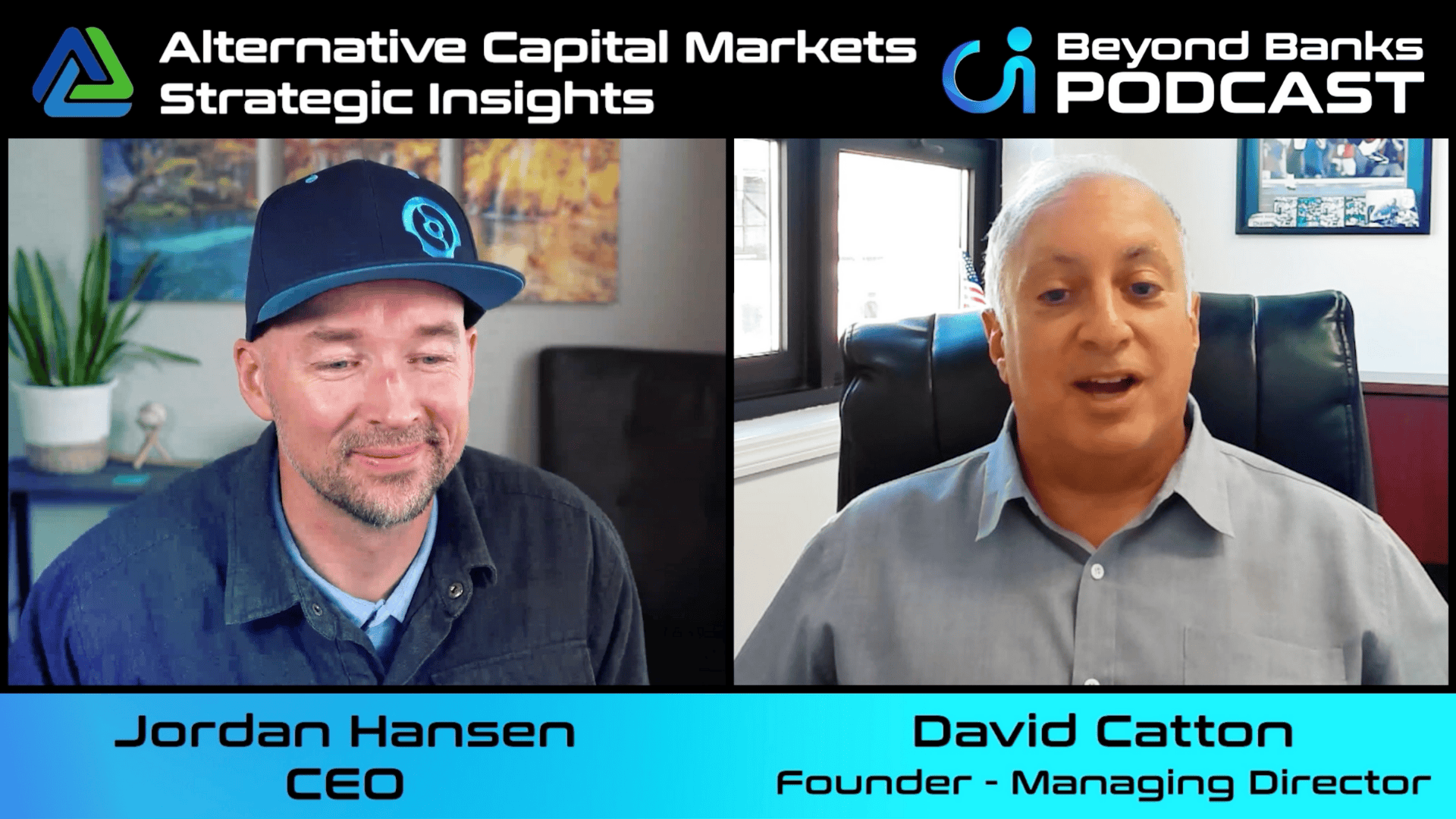
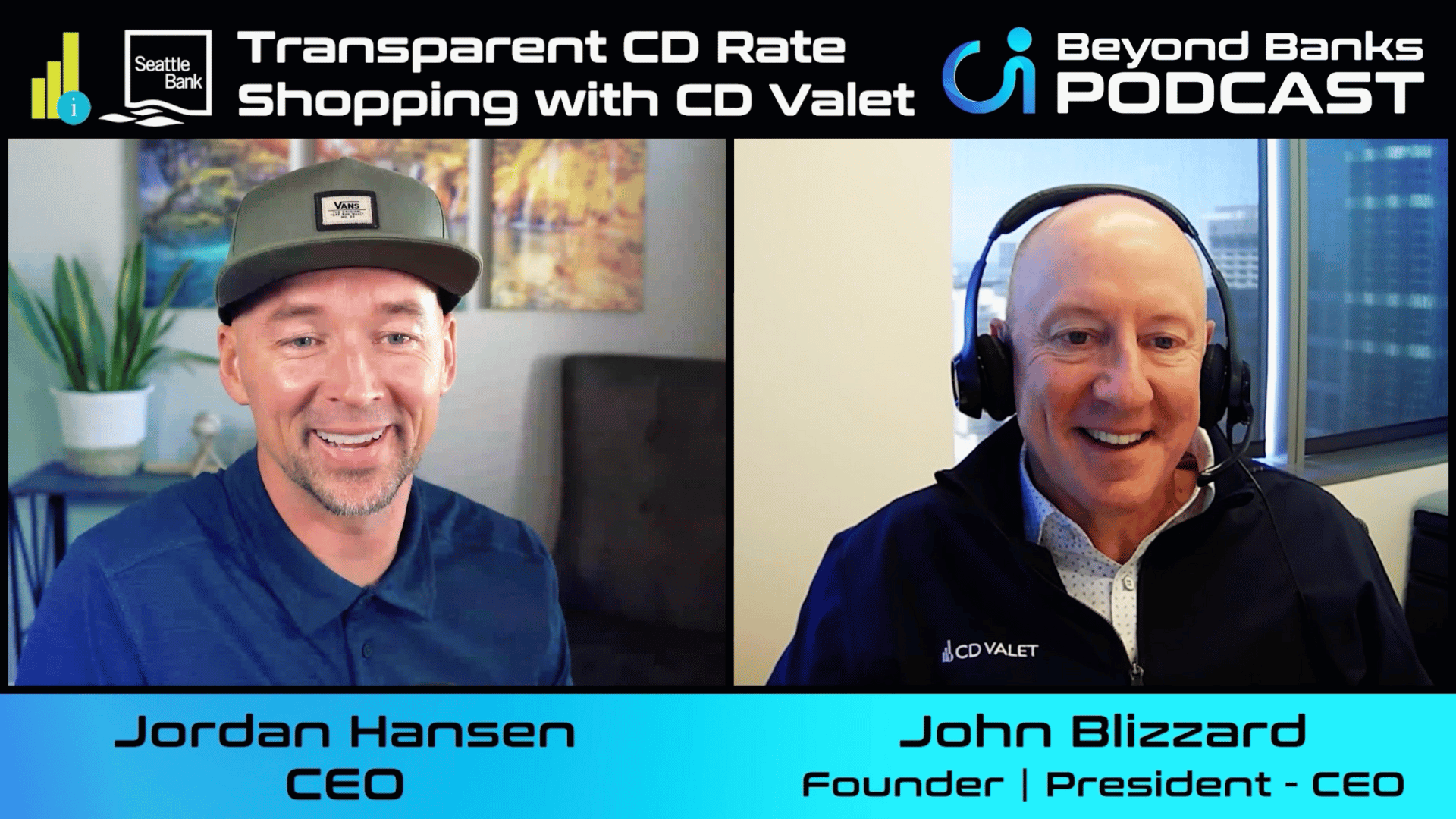


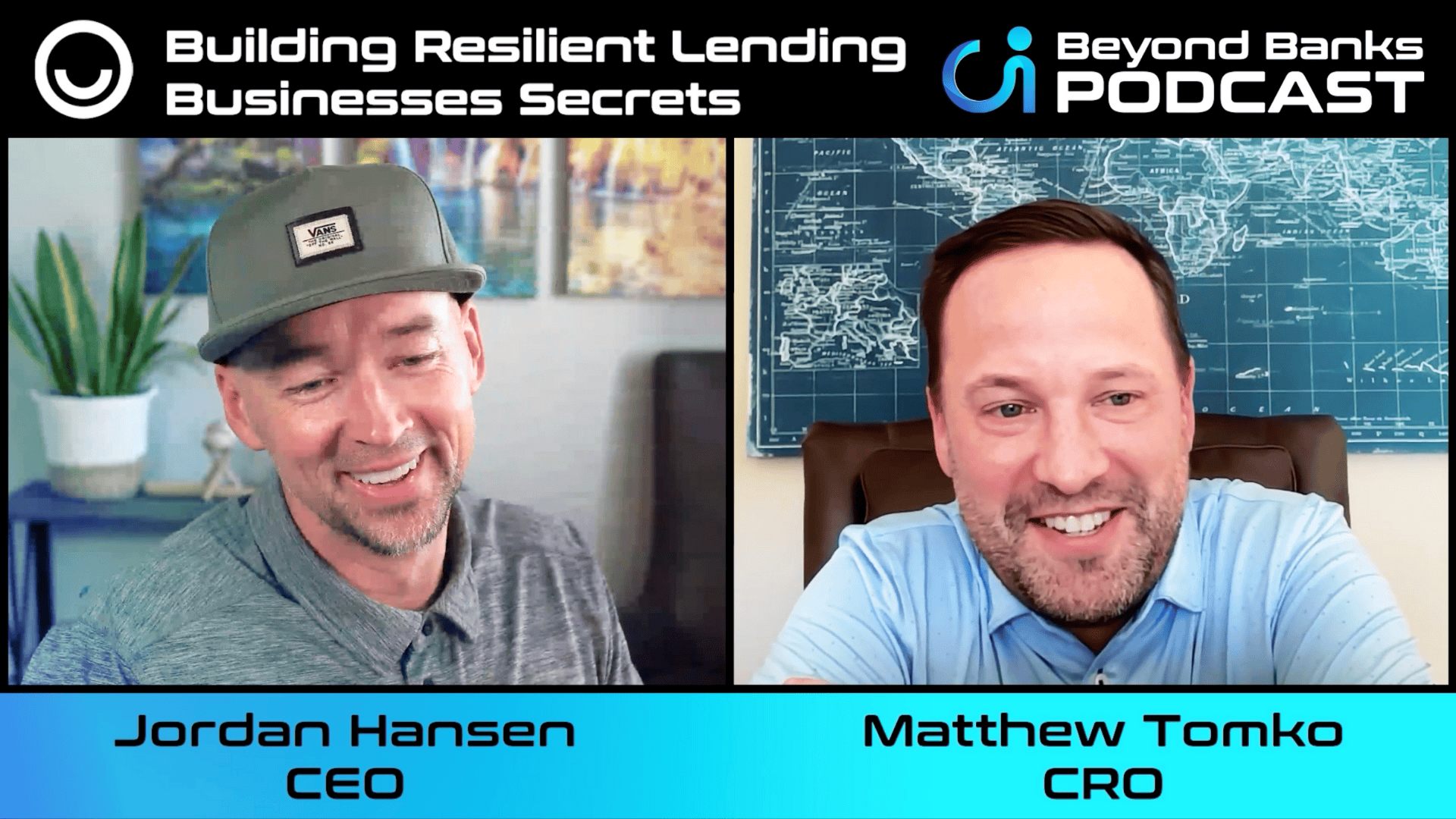

.png)
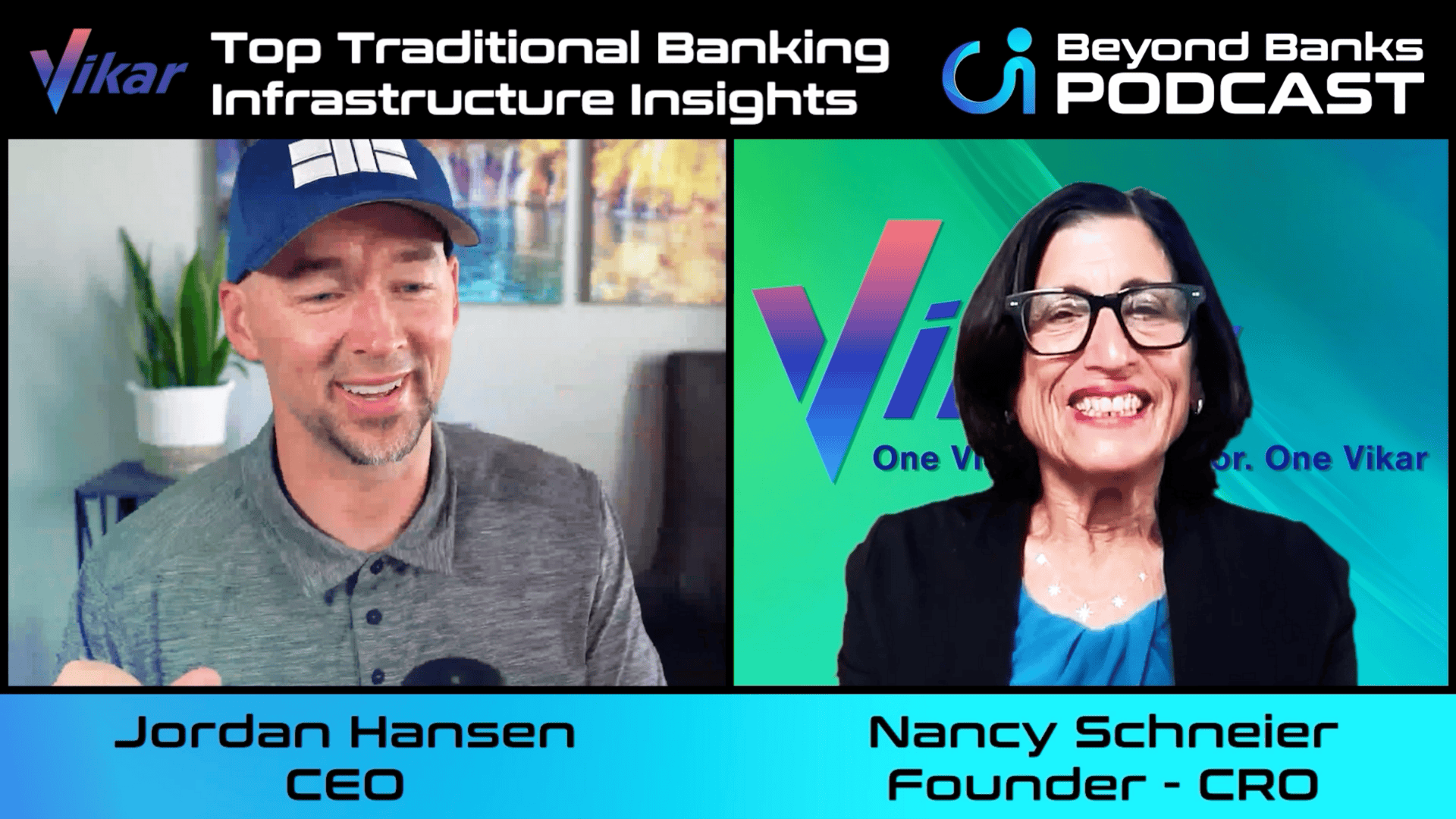
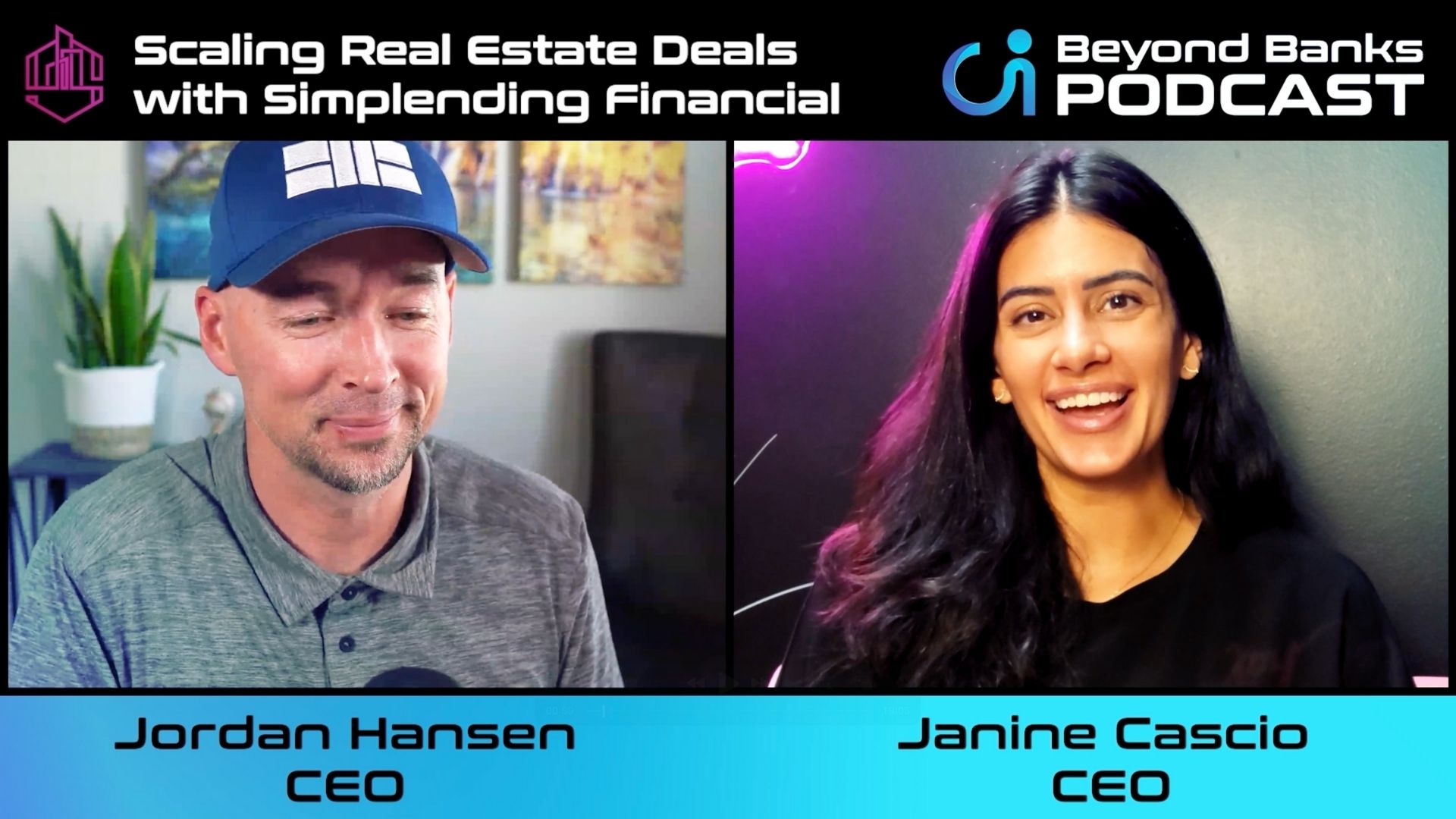
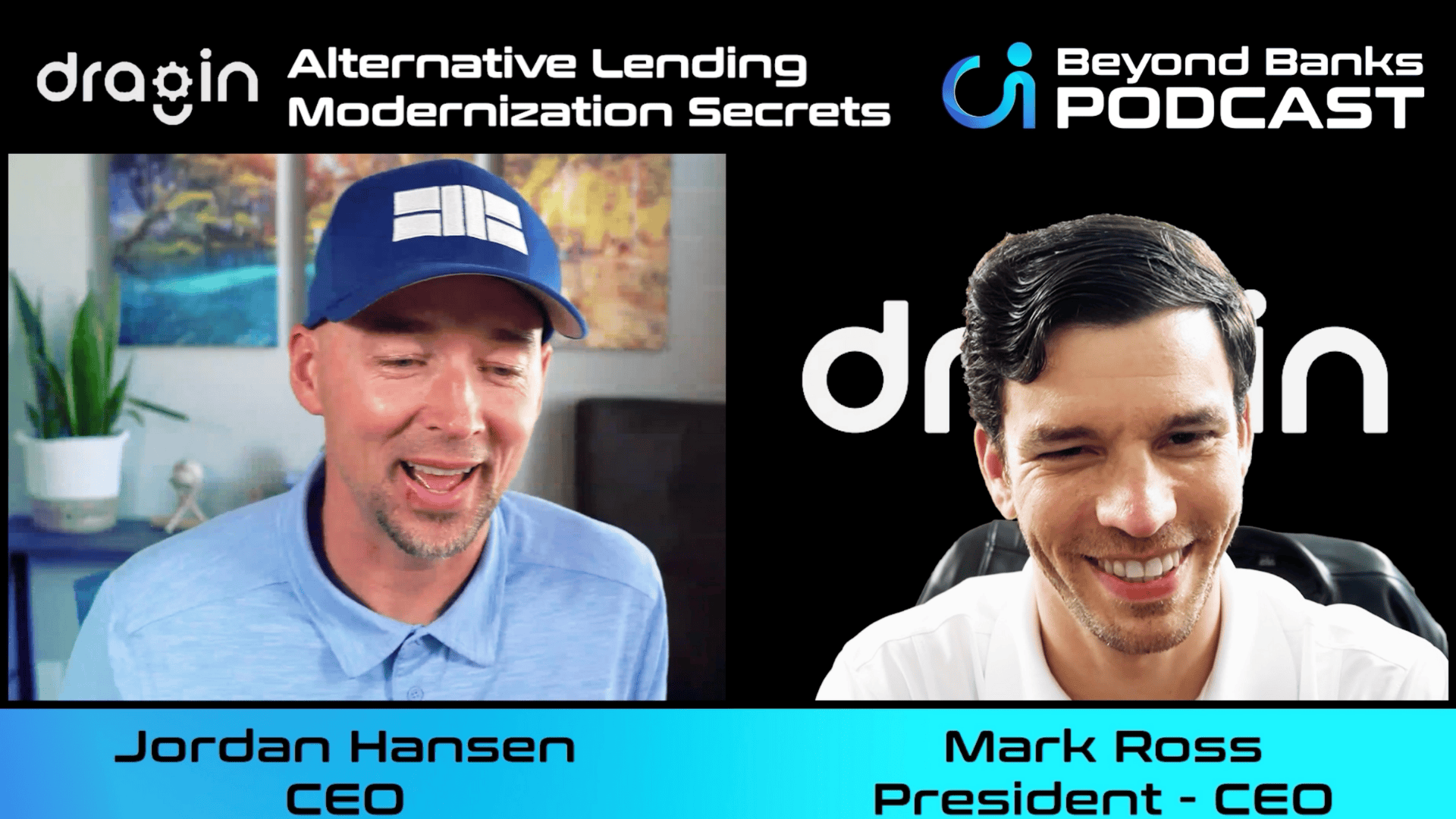

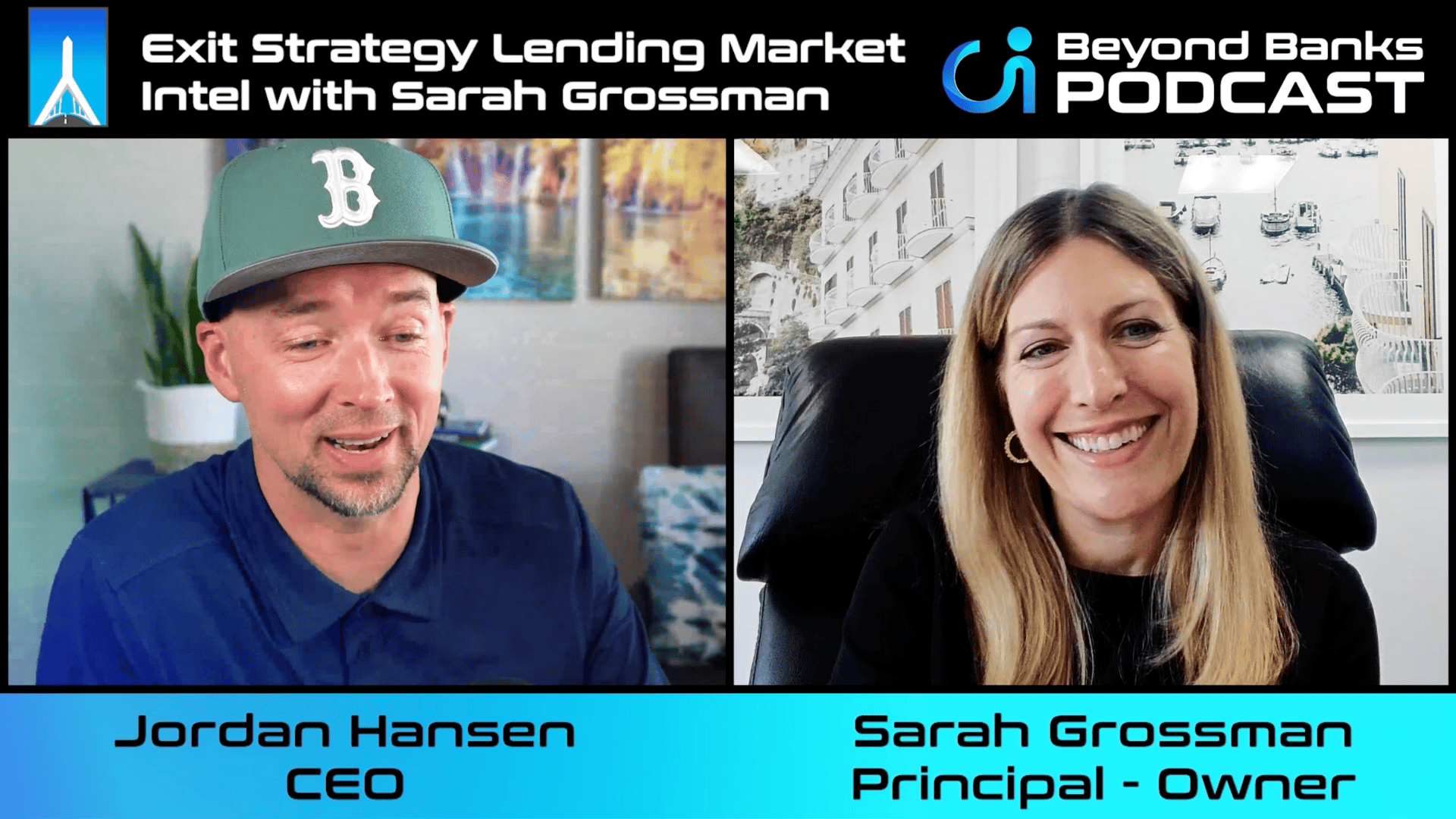
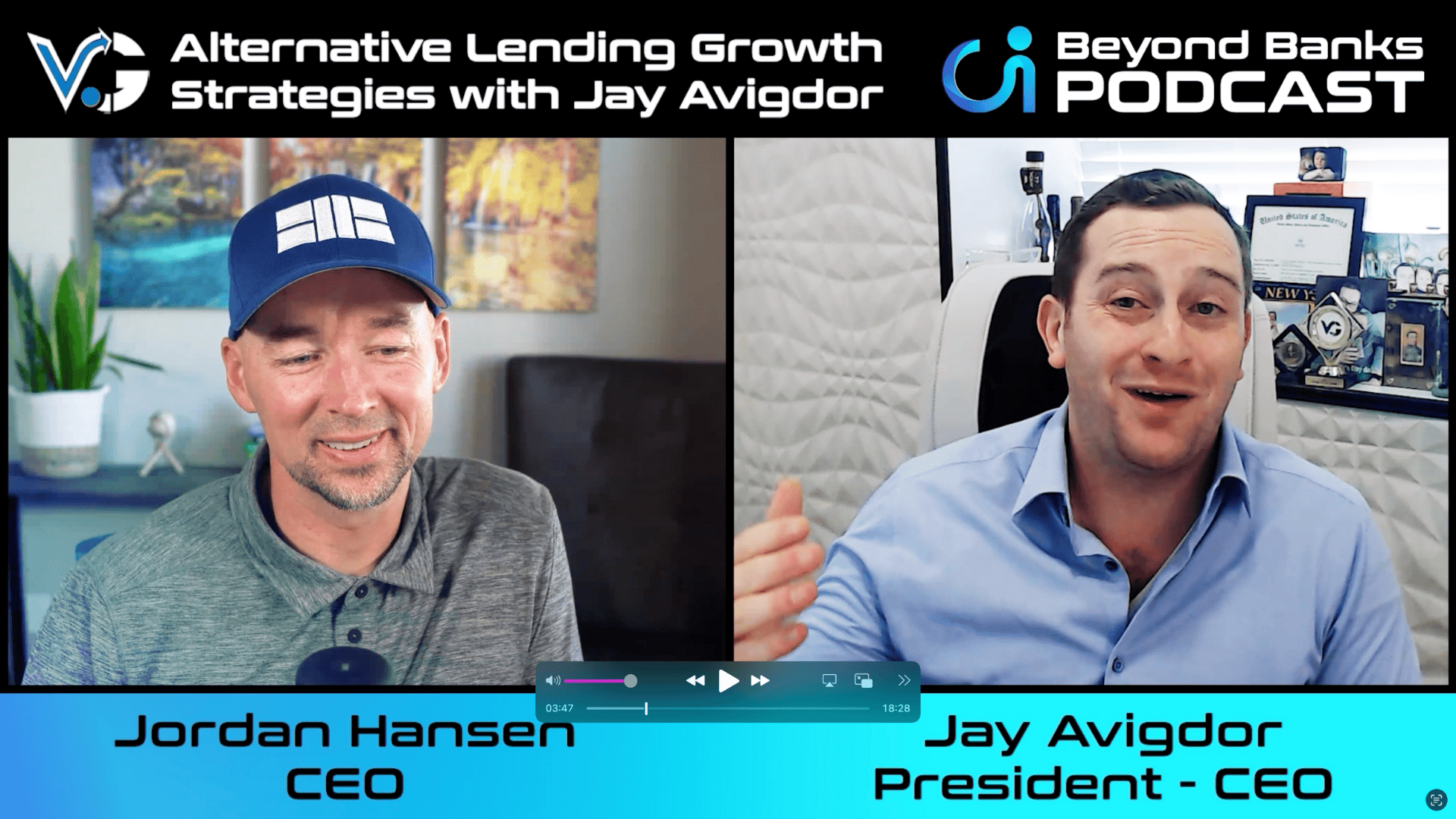
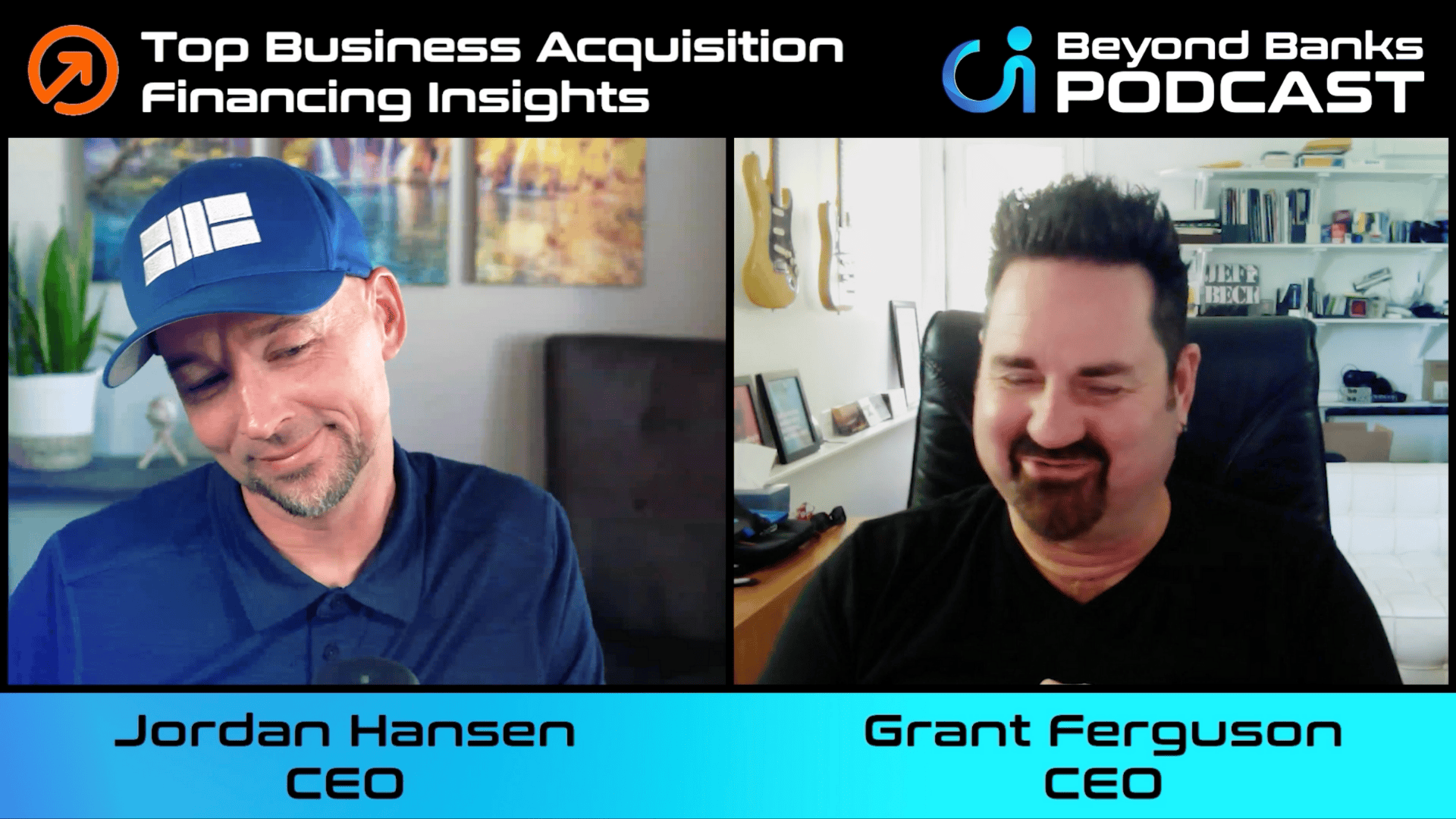
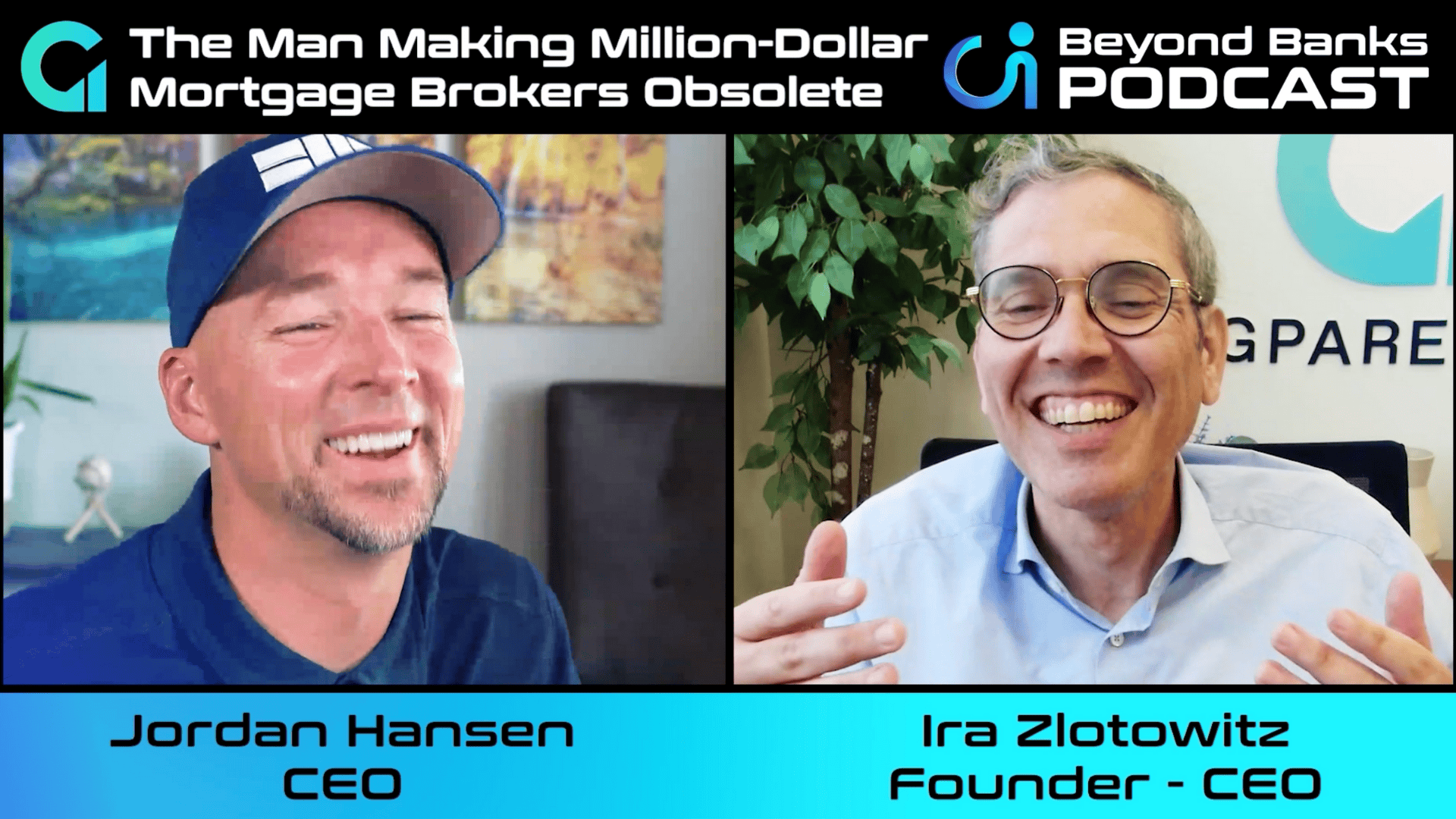
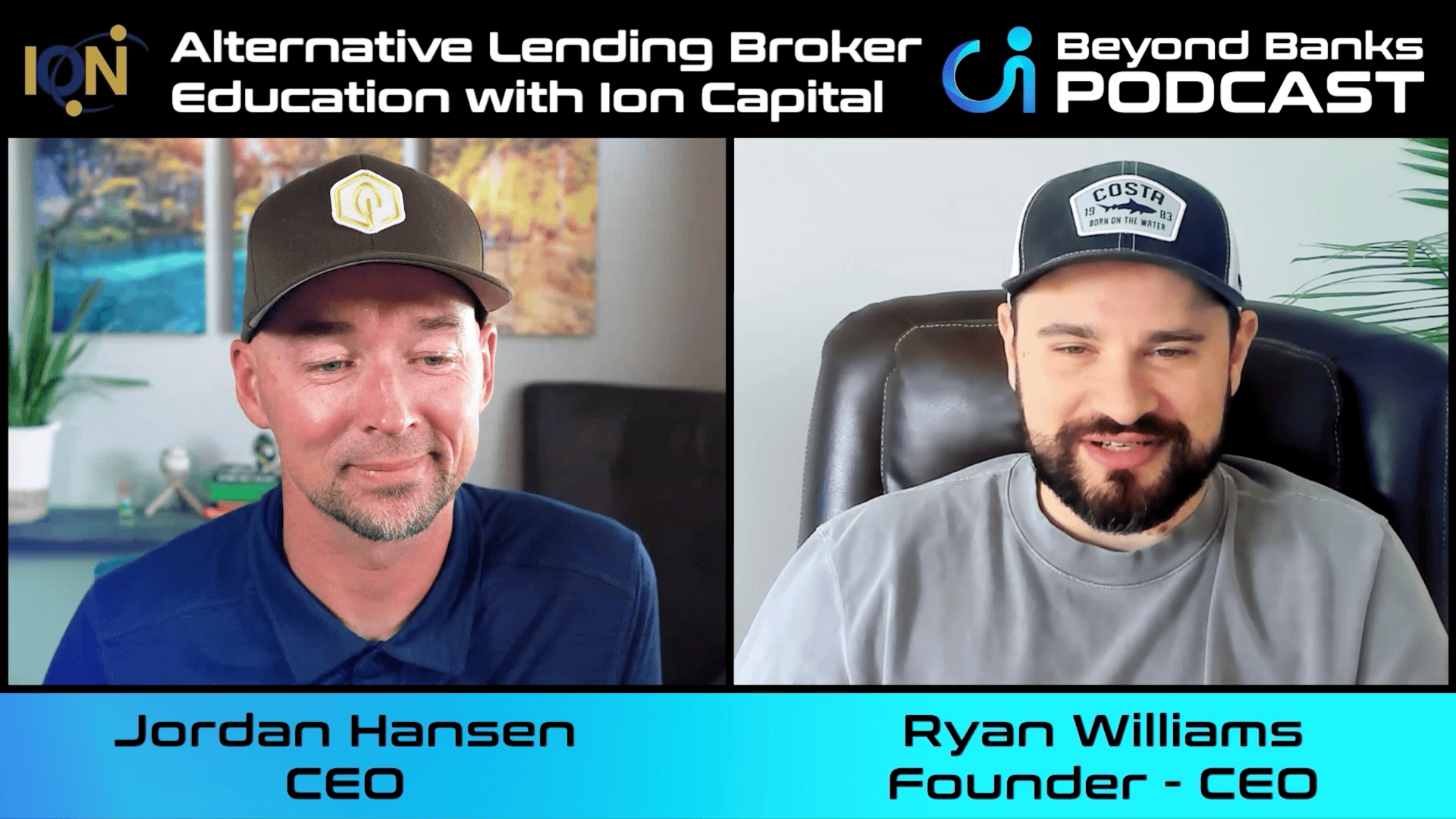
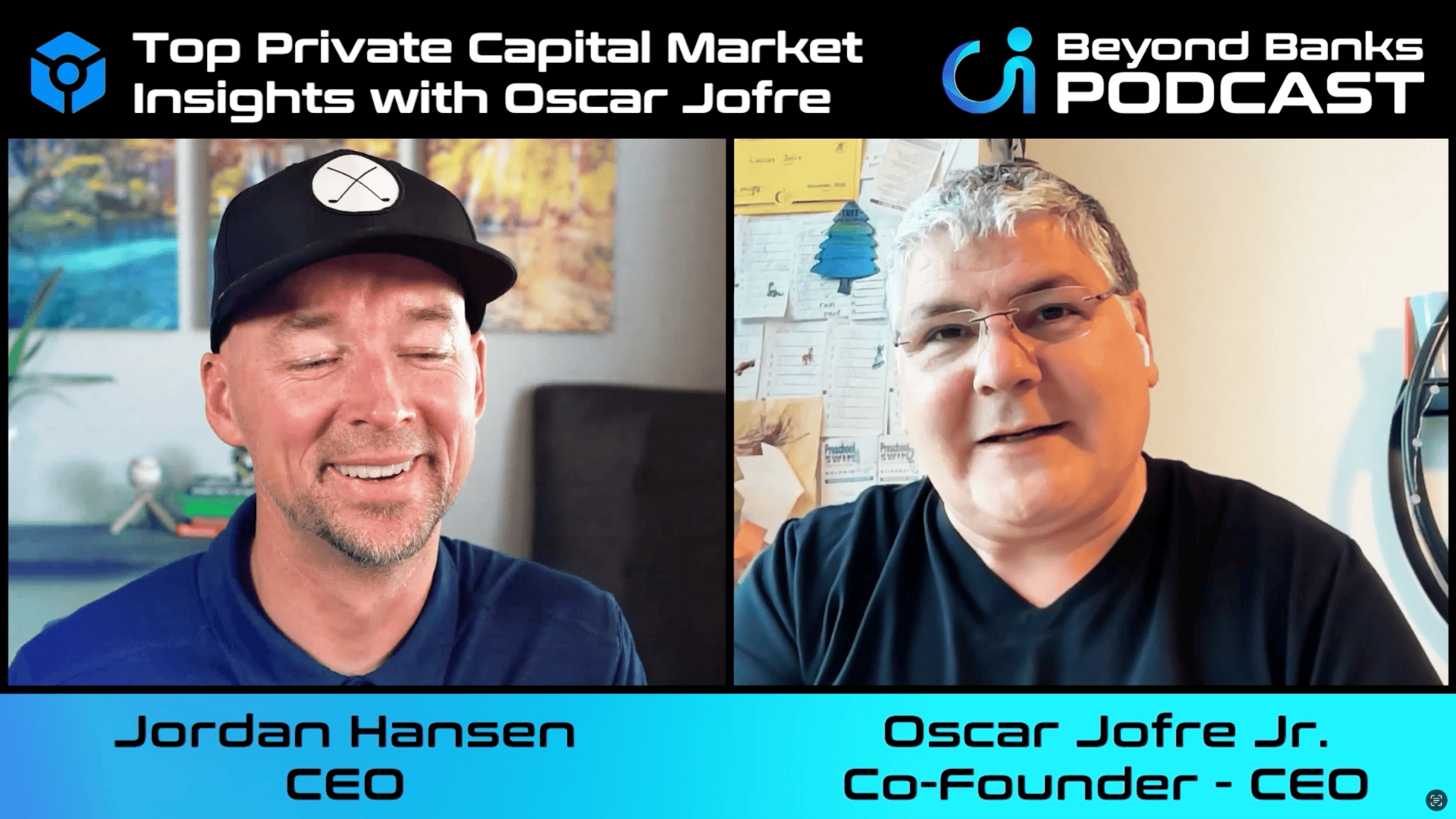

















.png)